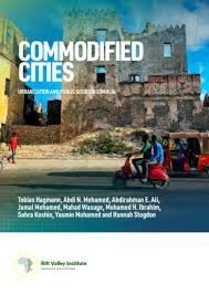Urbanization in the Somali territories is transforming Somali society in multiple and profound ways, with the growth of urban centres and networks paralleled by new patterns of accumulation, investment, redistribution, inclusion and exclusion.
While the perilous fragility of Somalia’s urban centres may seem clear, it is a rather more difficult task to determine just how fragile they are and who suffers the most as a result. Moreover, if Somali cities are fragile, they are concomitantly resilient. Otherwise, how can one explain the impressive demographic growth, urban development and skyrocketing real estate prices witnessed over the past decade or so?
Despite their various challenges and shortcomings – including successive waves of destruction, reconstruction, destabilization and re-stabilization – Somali urban centres continue to be attractive places to live, work, trade, get an education and socialize for many Somalis. What is also clear is that this urban growth has largely occurred without any significant involvement from local or national government. This report raises questions concerning the welfare of urban residents, the sustainability of these cities, and how best to respond to their fragility.
Relief Web































